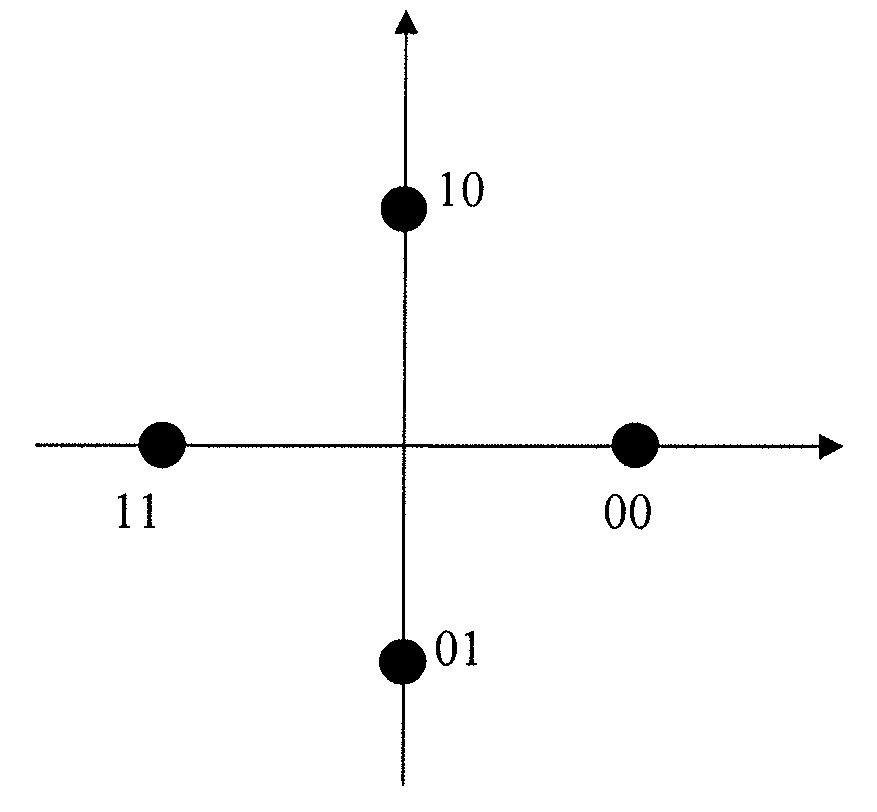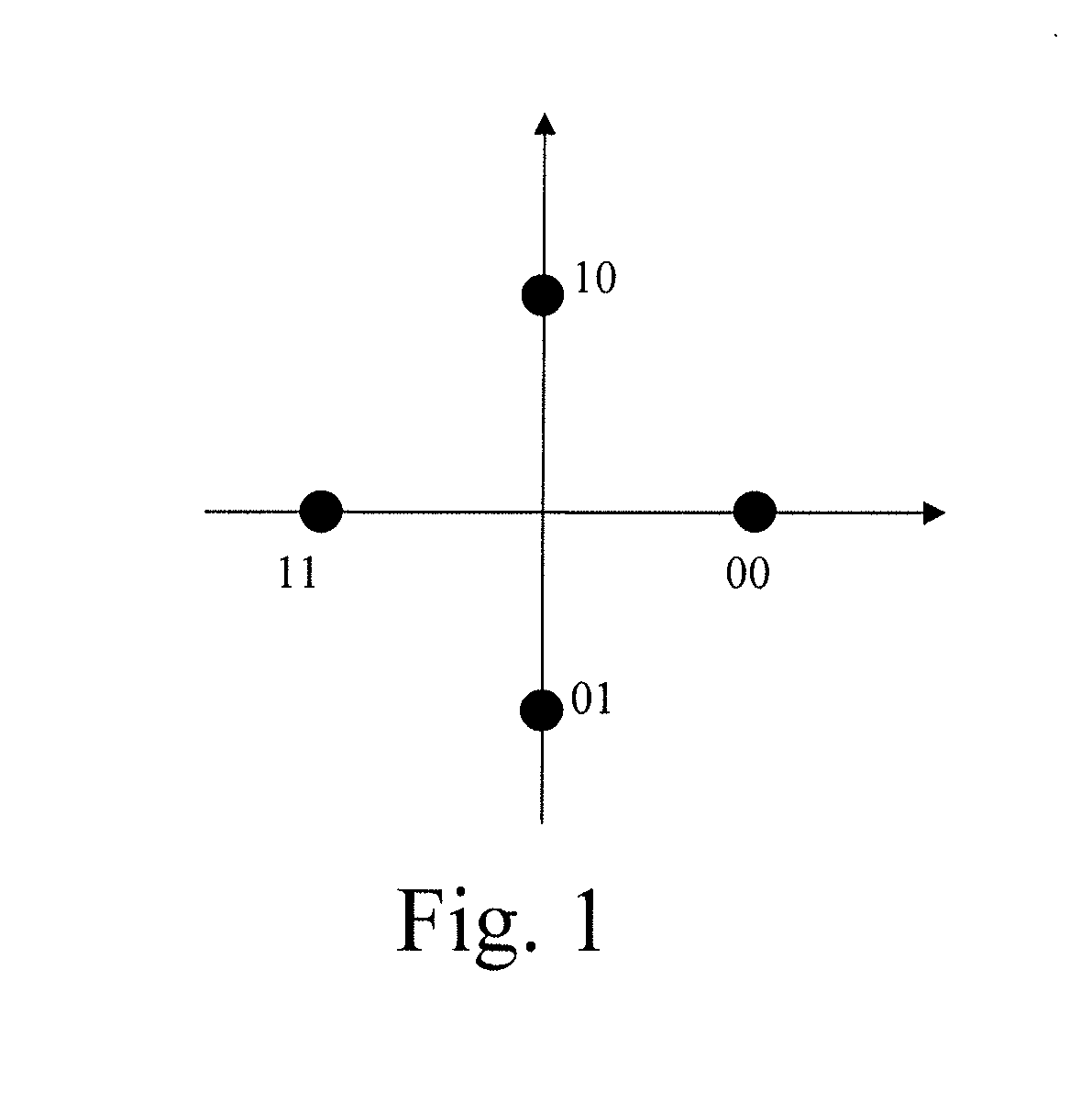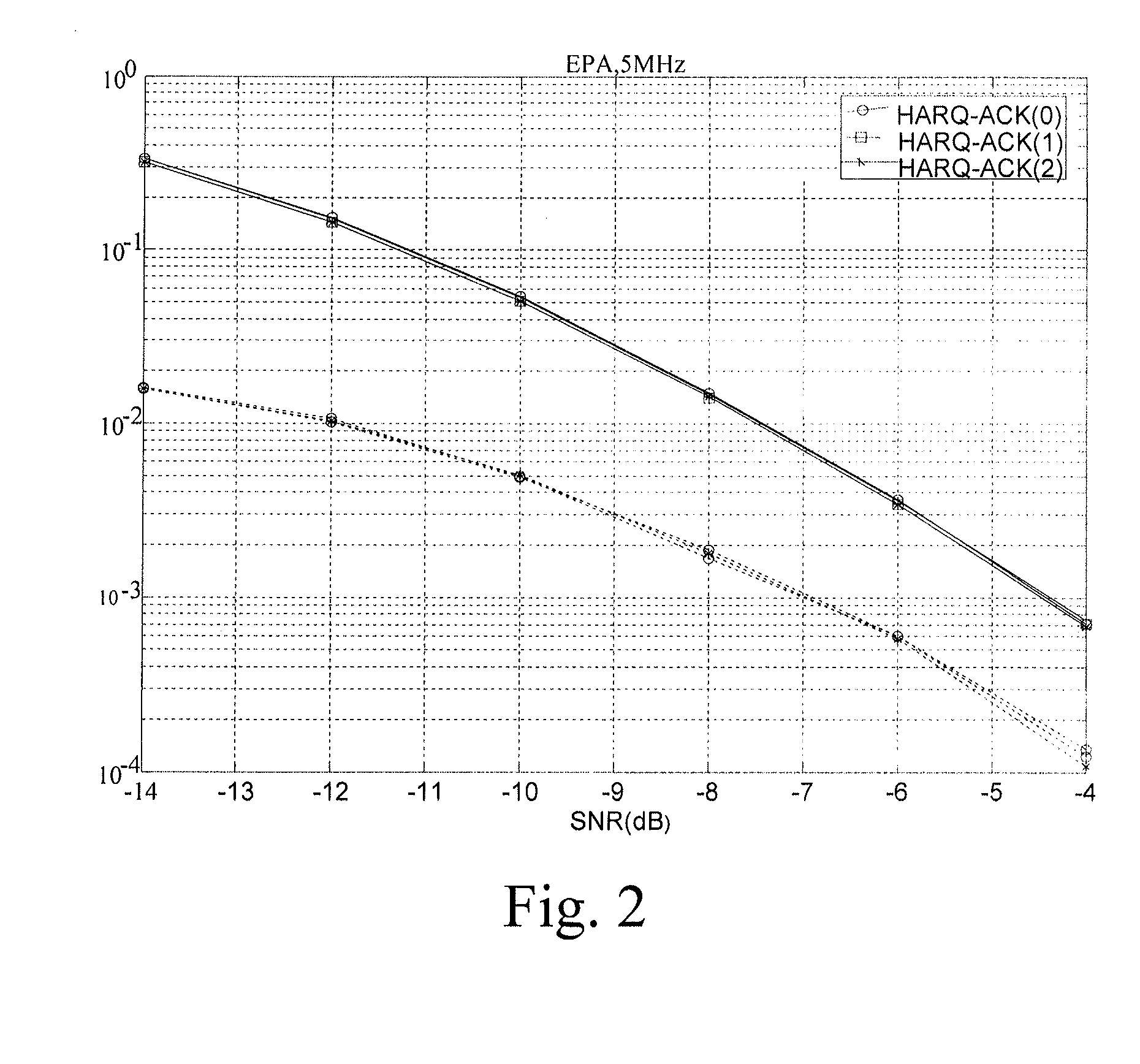Feedback information relating to a mobile communications system using carrier aggreregation
a mobile communications system and aggreregation technology, applied in the direction of digital transmission, signal allocation, transmission path sub-channel allocation, etc., can solve the problems of inefficient system operation, erroneous ack/nack signalling in the uplink, and corrupted harq buffer in the receiver, so as to reduce the likelihood of such symbols being confused for each other and minimize the error probability of a state
- Summary
- Abstract
- Description
- Claims
- Application Information
AI Technical Summary
Benefits of technology
Problems solved by technology
Method used
Image
Examples
first embodiment
[0033]In this first embodiment, the invention applies to the case where for a HARQ-ACK field, one codeword is used for encoding information of a first kind (e.g., NACK and NACK / DTX) and one codeword is used for encoding information of a second kind (e.g., ACK) and both codewords comprise the same channel and no other codewords in this HARQ-ACK field use that channel.
[0034]Consider HARQ-ACK(0) in Table 2 and suppose codeword (nPUCCH(1),0,1) was transmitted. This codeword represents NACK or NACK / DTX for HARQ-ACK(0). A codeword that represent a different information, i.e., ACK, for HARQ-ACK(0) which comprises the same channel is (nPUCCH(1),1,0). No other codewords in HARQ-ACK(0) use channel nPUCCH(1). If the channel is correctly detected, a NACK-to-ACK error occurs if (nPUCCH(1),1,0) if is detected. According to this invention, the error events are primarily due to the detection of the modulation symbols, both the NACK-to-ACK and ACK-to-NACK error probabilities are minimized by that th...
second embodiment
[0035]In the method according to the invention, there is, for the at least one feedback information message, one codeword corresponding to information of a first kind and two codewords corresponding to information of a second kind. This is exemplified in the following.
[0036]In this second embodiment, the invention applies to the case where for a HARQ-ACK field, two codewords are used for encoding information of a first kind (e.g., NACK and NACK / DTX) and one codeword is used for encoding information of a second kind (e.g., ACK) and all codewords comprise the same channel and no other codewords in this HARQ-ACK field comprise that channel.
[0037]For example in Table 2, for HARQ-ACK(0), the codewords (nPUCCH(2),0,1) and (nPUCCH(2),0,0) represent NACK or NACK / DTX. A codeword that represent a different information, i.e., ACK, for HARQ-ACK(0) which comprises the same channel is (nPUCCH(2),1,1). If the channel is correctly detected, a NACK-to-ACK error occurs if nPUCCH(2),1,1) is detected. ...
third embodiment
[0039]In this third embodiment, the invention applies to the case where for a HARQ-ACK field, K>1 codewords are used for encoding information of a first kind (e.g., NACK and NACK / DTX) and K codewords are used for encoding information of a second kind (e.g., ACK) and all codewords comprise the same channel and no other codewords in this HARQ-ACK field comprise that channel.
[0040]According to this invention the error probability is minimized by that the modulation symbols for these 2K codewords are chosen such that the distance of the modulation symbols is maximized between at least one of the codewords representing information of a first kind and at least one of the codewords representing information of a second kind.
[0041]For any of the variants of the method according to the invention, a first kind of information may be any combination or single state of Negative-Acknowledgement (NACK), Negative-Acknowledgement (NACK) / Discontinuous Transmission (DTX). Discontinuous Transmission (DT...
PUM
 Login to View More
Login to View More Abstract
Description
Claims
Application Information
 Login to View More
Login to View More - R&D
- Intellectual Property
- Life Sciences
- Materials
- Tech Scout
- Unparalleled Data Quality
- Higher Quality Content
- 60% Fewer Hallucinations
Browse by: Latest US Patents, China's latest patents, Technical Efficacy Thesaurus, Application Domain, Technology Topic, Popular Technical Reports.
© 2025 PatSnap. All rights reserved.Legal|Privacy policy|Modern Slavery Act Transparency Statement|Sitemap|About US| Contact US: help@patsnap.com



